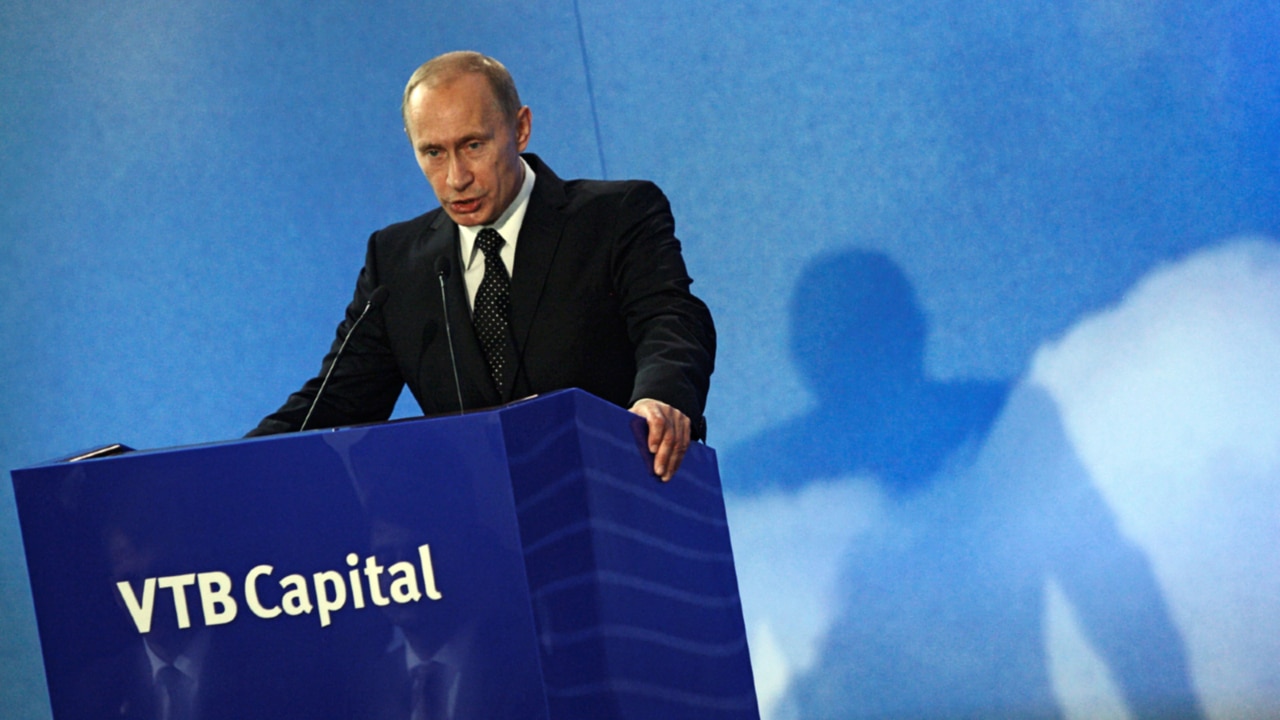NATO Security General Jens Stoltenberg warns body is considering taking stronger line on Ukraine funding, amid fears Trump-led US would remove support
NATO Security General Jens Stoltenberg has flagged the body is considering overhauling the way its members fund the Ukrainian war effort amid concerns the election of Donald Trump to the White House would put Kyiv's future in jeopardy.
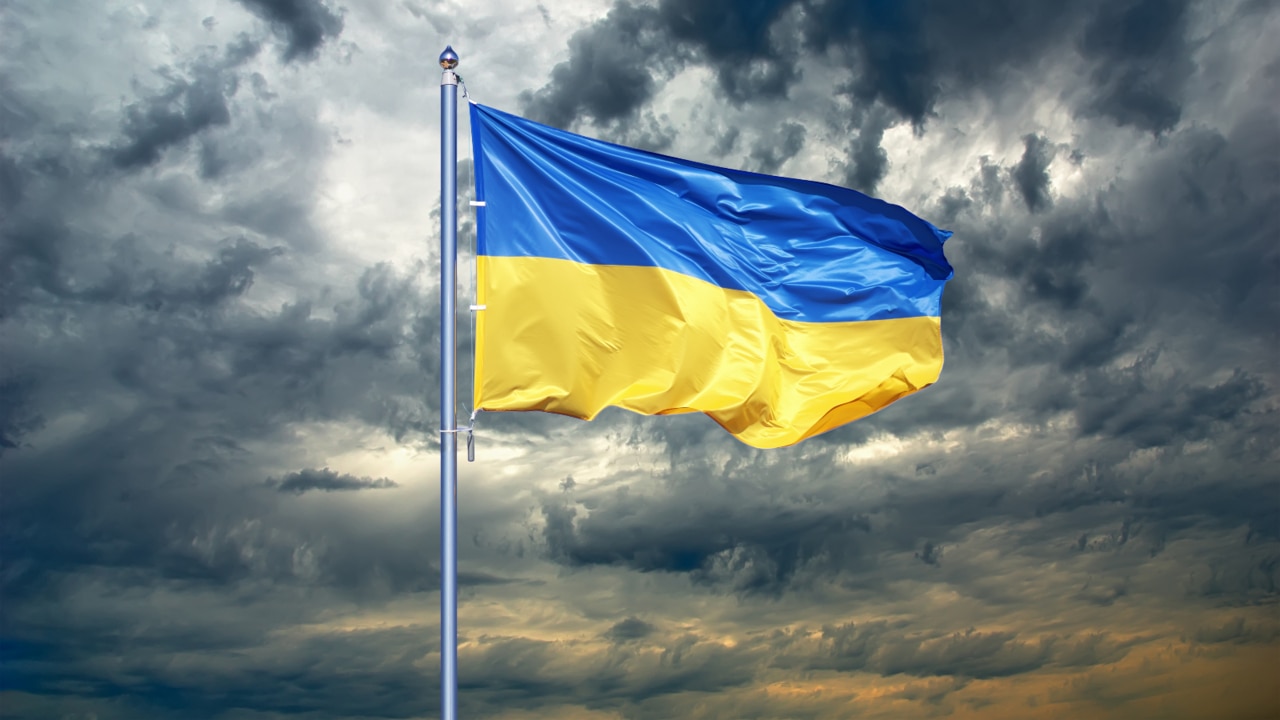
NATO Security General Jens Stoltenberg has flagged the body will take a stronger stance on encouraging contributions to Ukraine's war effort amid concerns the potential election of Donald Trump to the White House will put Kyiv's future in jeopardy.
Mr Stoltenberg said allies would discuss how to “ensure predictable support” for Ukraine for the “long haul” and expected NATO ministers to approve, lead and coordinate an unprecedented level of security assistance and training package for the war-stricken nation.
NATO has implemented the “largest reinforcement of collected defence in a generation” and had put in place the most “comprehensive” defence plans since the end of the Cold War in 1991.
Defence spending was on an “upwards trajectory” across the alliance, as the NATO chief outlined the plan to make progress on a new “defence industrial pledge” to be approved by NATO Summit leaders in Washington DC in July.
“This will enable us to scale up military production and send a signal - long term demand to industry,” he said.
“Ministers will also discuss Russia’s intensifying campaign of hostile acts across NATO countries, hallmarks which are sabotage, acts of violence, cyber-attacks and disinformation.”
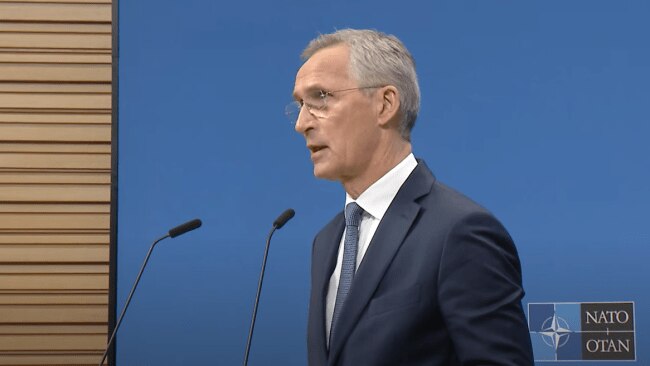
A Washington Post journalist asked Mr Stoltenberg for more information on the arming of Ukraine, and to explain how NATO mandate functions would prevent a withdrawal of support from a future US president, in what has been described as “Trump-proofing”.
Mr Stoltenberg declined to provide more details as it was a pre-ministerial press conference but said more details would emerge after the summit.
“I hope that we will be able to agree on the plan for NATO security assistance and training for Ukraine on Friday,” Mr Stoltenberg said.
“What I can say today is that we now have very broad agreement in NATO.”
Mr Stoltenberg said by using a more predictable and robust NATO framework, combined with a commitment of spending “at least €40 billion per year”, would ensure a long-term and predictable level of support for Ukraine.
“But the longer this war lasts, it is important we have more predictability and also fair burden sharing,” he said.
“Of course, we appreciate what the United States and all the allies have done, it is unprecedented, at the same time we saw that the United States spent six months agreeing on a supplemental for Ukraine.
“We also have seen some of the promises that European allies have made has not been delivered.
“If we turn this into not ‘voluntary contributions’ but ‘NATO commitments’, of course it will become more robust, it will become more reliable.”
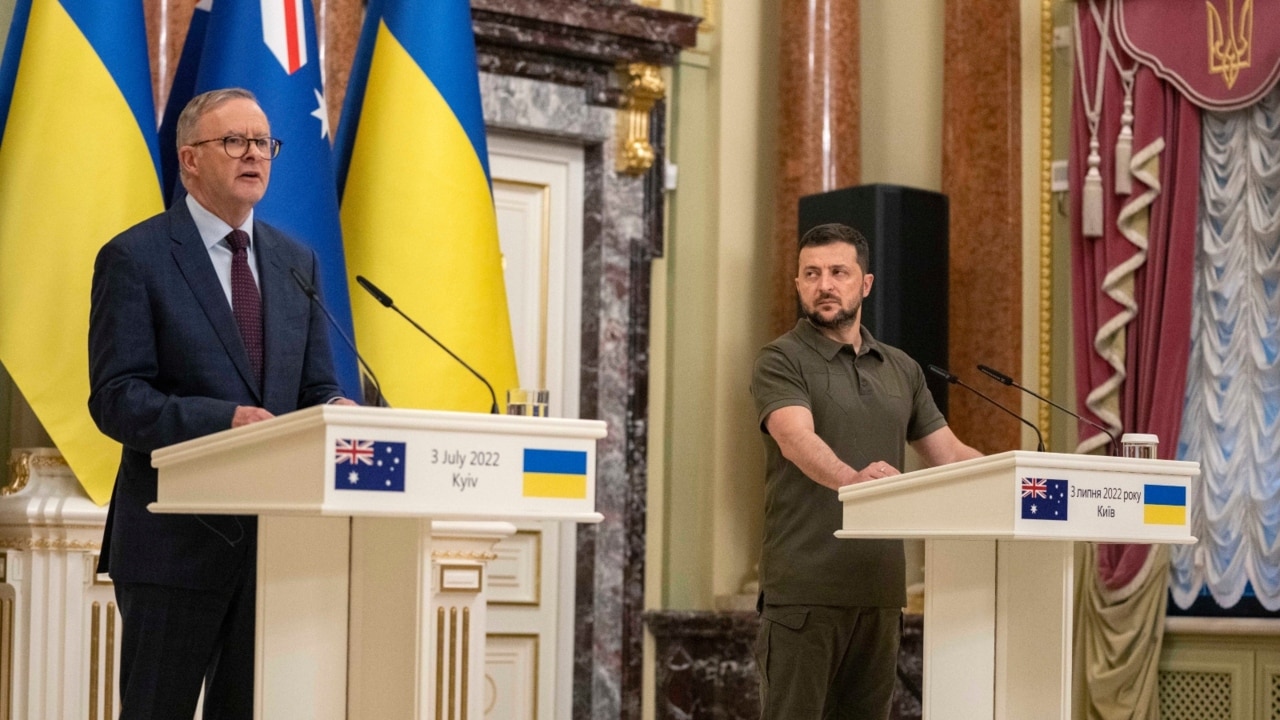
Mr Stoltenberg said allies were taking decisive measures, such as “making arrests and launching legal proceedings”, and were collectively stepping up protection of critical infrastructure, as well as exchanging information and intelligence.
“Russia’s actions will not stop us from supporting Ukraine,” he said.
“This ministerial will also include a meeting of the nuclear planning group, where allies will discuss the ongoing adaptation of nuclear capabilities in the current security environment. We have made significant progress in this adaptation.
“The first F35 fighter jets were declared ready by the Netherlands for NATO’s nuclear mission, and the US is modernising its nuclear weapons in Europe.
Mr Stoltenberg said as diplomatic challenges “evolve”, NATO’s nuclear mission remained the same: “to preserve peace, prevent coercion, and deter aggression”.
The NATO leader said there had been “dangerous nuclear rhetoric from the Russian side” and that Moscow had sent nuclear weapons to Belarus.
Mr Stoltenberg said NATO also had to consider China as a nuclear superpower which was “heavily modernising its nuclear capabilities”.
Since China, along with North Korea, would have a “much higher” number of intercontinental nuclear weapons in a few years, Mr Stoltenberg said NATO had to “clearly communicate” their nuclear deterrent was “effective, secure and reliable”.
“To conclude, at this defence ministerial we will bolster our support to Ukraine, we will strengthen our defences and we will send a strong message of deterrence to our adversaries.
Mr Stoltenberg was asked since Ukraine could not become a NATO member in the near future, what other alliance options were available for the embattled nation.
The NATO Secretary General said the bolstering of military support and training was a two-pronged benefit for Ukraine, first by allowing it to defend itself against Russia and second, to ensure NATO could build a “future force” in Ukraine to help them “move towards full NATO membership”.
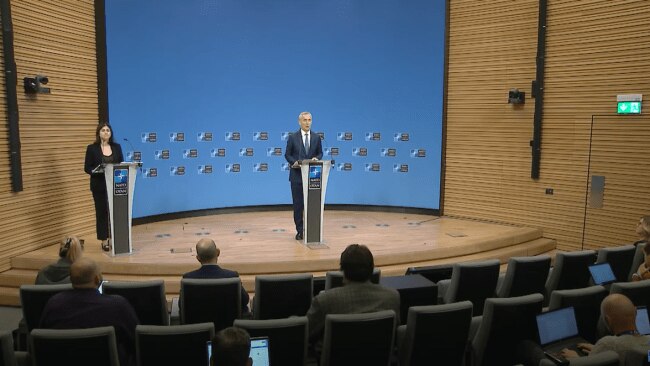
Mr Stoltenberg called for NATO members to use “strong language” to be used on membership.
“It’s not for me to go into the details and the exact wording, but I expect that that language be even clearer in our commitment to that Ukraine will become a member of the alliance,” he said.
“I expect allies will actually make important announcements between now and the summit, and at the summit, for more military equipment. Air defence, artillery, missiles, which is urgently needed to ensure that Ukraine prevails as a sovereign independent nation.
“Without that, of course, there is no membership issue to be discussed. We need to ensure that Ukraine prevails, that is the absolute minimum for Ukraine to become a member of the alliance.”
“The purpose of NATO, of course, is not to wage war, the purpose of NATO is to prevent war.”
Mr Stoltenberg said he met with Hungarian Prime Minister Viktor Orbán in Budapest on Wednesday morning and said Hungary “would not participate in these NATO efforts”.
“I have stated that I accept that position … Hungary will not send personnel to these activities and will not contribute to the NATO pledge,” he said.
“At the same time, Prime Minister Orbán made it clear that of course they would adhere to all their NATO obligations.
